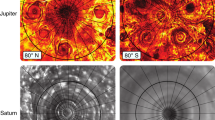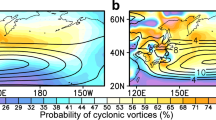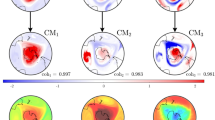Abstract
THE interesting letter of Dr. S. K. Banerji on the appearances of vortices at Bombay before the arrival of the monsoon is based for its theory on a fairly strict acceptance of V. Bjerknes' view that a cyclone is a product merely of dynamical instability of Helmholtz waves on a widely extended front between cold and warm air. But many still accept the earlier view, due to Dove, Helmholtz, Margules, Bigelow, Exner, and others, that a cyclone merely requires the juxta-position of two air-masses at different temperatures, the latent heat of condensation providing energy in addition to that from the descent of the centre of gravity of the system when the cold air flows under the warm. The conventional statement regarding the area in front of the oncoming monsoon when disturbed was that it is one ‘of squally weather in which a storm may be forming’; and the corresponding explanation was that at first light variable airs prevailed there for two or three days, so that the air near the sea surface became very hot and moist, conditions favourable for instability.
This is a preview of subscription content, access via your institution
Access options
Subscribe to this journal
Receive 51 print issues and online access
$199.00 per year
only $3.90 per issue
Buy this article
- Purchase on Springer Link
- Instant access to full article PDF
Prices may be subject to local taxes which are calculated during checkout
Similar content being viewed by others
Rights and permissions
About this article
Cite this article
WALKER, G. [Letters to Editor]. Nature 122, 841–842 (1928). https://doi.org/10.1038/122841b0
Issue Date:
DOI: https://doi.org/10.1038/122841b0
Comments
By submitting a comment you agree to abide by our Terms and Community Guidelines. If you find something abusive or that does not comply with our terms or guidelines please flag it as inappropriate.



